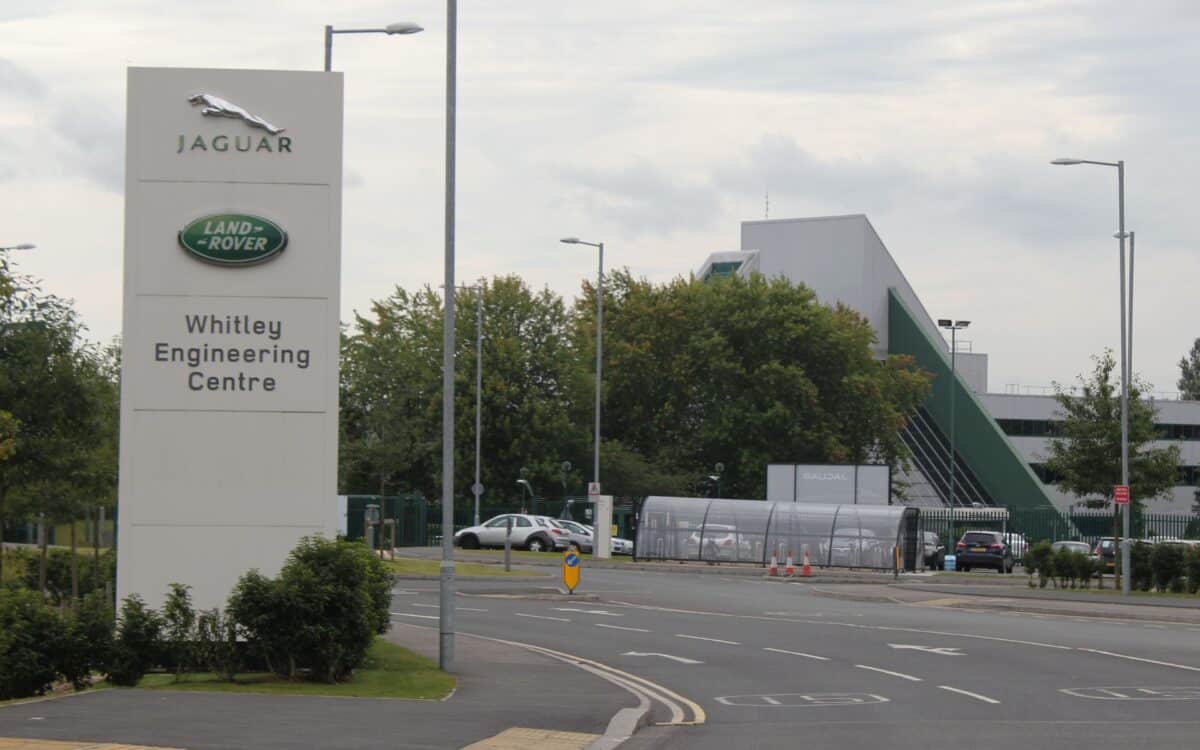Jaguar Land Rover, the renowned British luxury automaker, has announced a suspension of its vehicle shipments to the United States in April.
This decision follows the recent imposition of a 25% tariff on imported vehicles by the Trump administration, which went into effect earlier this month. The move has raised questions about the future of British automakers in the U.S. market.
According to The New York Times, Jaguar Land Rover is actively evaluating its next steps in response to the new trading terms, while also balancing the challenges presented by the new tariff structure.
New Tariffs Prompt Immediate Action from JLR
The company, known for its prestigious brands like Jaguar, Defender, and Range Rover, is heavily reliant on exports to the U.S., as it does not have any manufacturing facilities there. In the last quarter of 2024, JLR shipped 38,000 vehicles to the United States.
The 25% tariff, effective from April 2025, now poses a significant challenge to JLR’s profitability in this key market. In a statement, Jaguar Land Rover emphasized the importance of the U.S. market, saying :
The U.S.A. is an important market for JLR’s luxury brands – The company said.
As we work to address the new trading terms with our business partners, we are enacting our short-term actions, including a shipment pause in April, as we develop our mid- to longer-term plans.
The tariff increase affects not just Jaguar Land Rover but other British luxury car brands like Bentley and Aston Martin. These companies face difficulties in establishing manufacturing plants in the U.S., as their smaller production volumes do not justify the expense.
Consequently, the new tariffs increase costs, which could lead to higher prices for consumers and reduced competitiveness. Jaguar Land Rover, in particular, will have to navigate these challenges as it considers how to proceed under the new trade conditions.
U.S. Market’s Importance to JLR
The United States remains one of the largest markets for British automobiles, with £6.4 billion worth of cars exported there in 2023. For Jaguar Land Rover, approximately 20% of its global sales come from the U.S.
In the financial year ending March 2024, the company earned £6.5 billion in revenue from its U.S. operations. This makes the U.S. a critical market for the company, reinforcing the need for strategic adjustments in response to the tariffs.
Tata Motors Faces Market Setback
The parent company of Jaguar Land Rover, Tata Motors, has already seen a 9% drop in its stock value following the tariff announcement. This drop reflects investor concerns about the company’s ability to maintain its performance in the face of escalating trade tensions.
The shares of Tata Motors are now trading at their lowest level since mid-2023, indicating the significant impact that the tariff imposition is having on investor confidence.
The British government has not yet retaliated, but discussions are ongoing regarding potential responses. The U.K. continues to seek a broader trade agreement with the U.S., particularly focusing on the technology sector. At the same time, the government is consulting with businesses over a list of U.S. imports that could face retaliatory tariffs.
While the U.S. is Britain’s second-largest trading partner, this trade is heavily skewed toward services, and the trade in goods is more balanced. In 2023, Britain exported about £60 billion in goods to the U.S. while importing about £58 billion.
These developments underscore the challenging landscape for British luxury car manufacturers like Jaguar Land Rover as they navigate a shifting trade environment with one of their most significant export markets.









